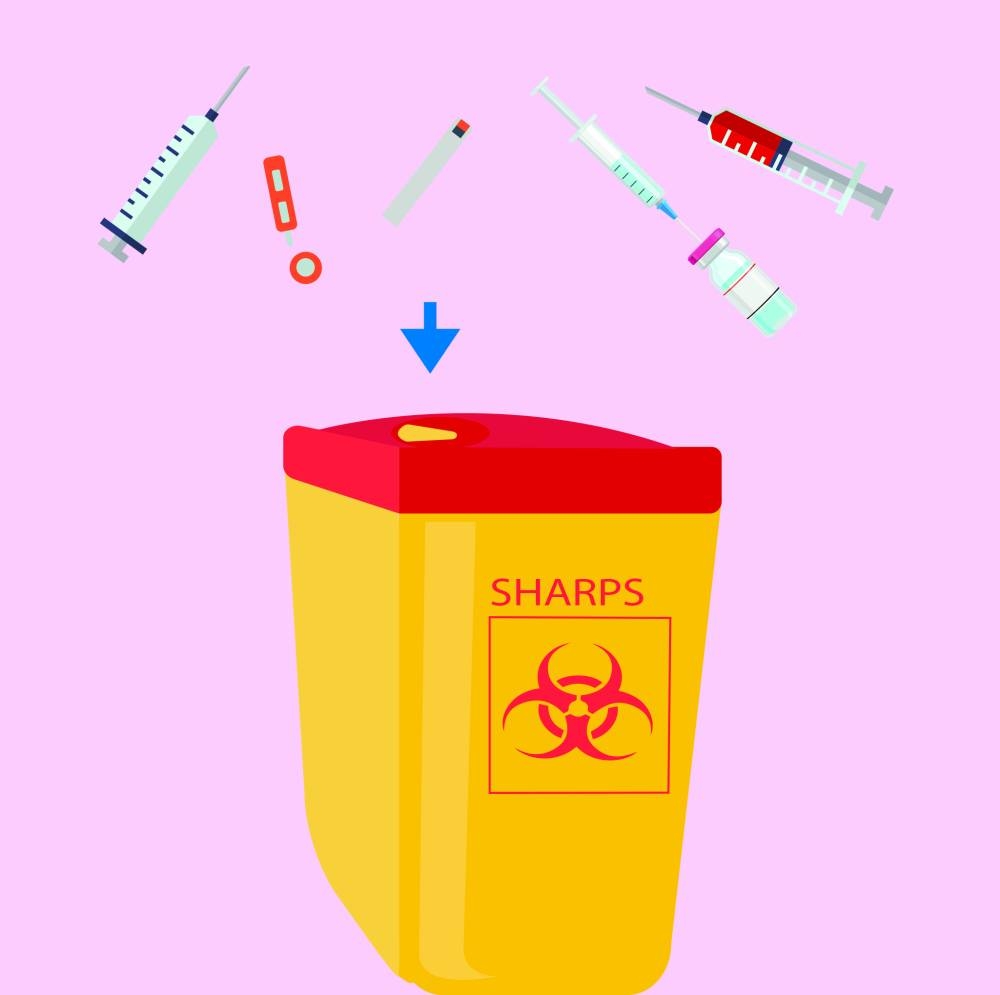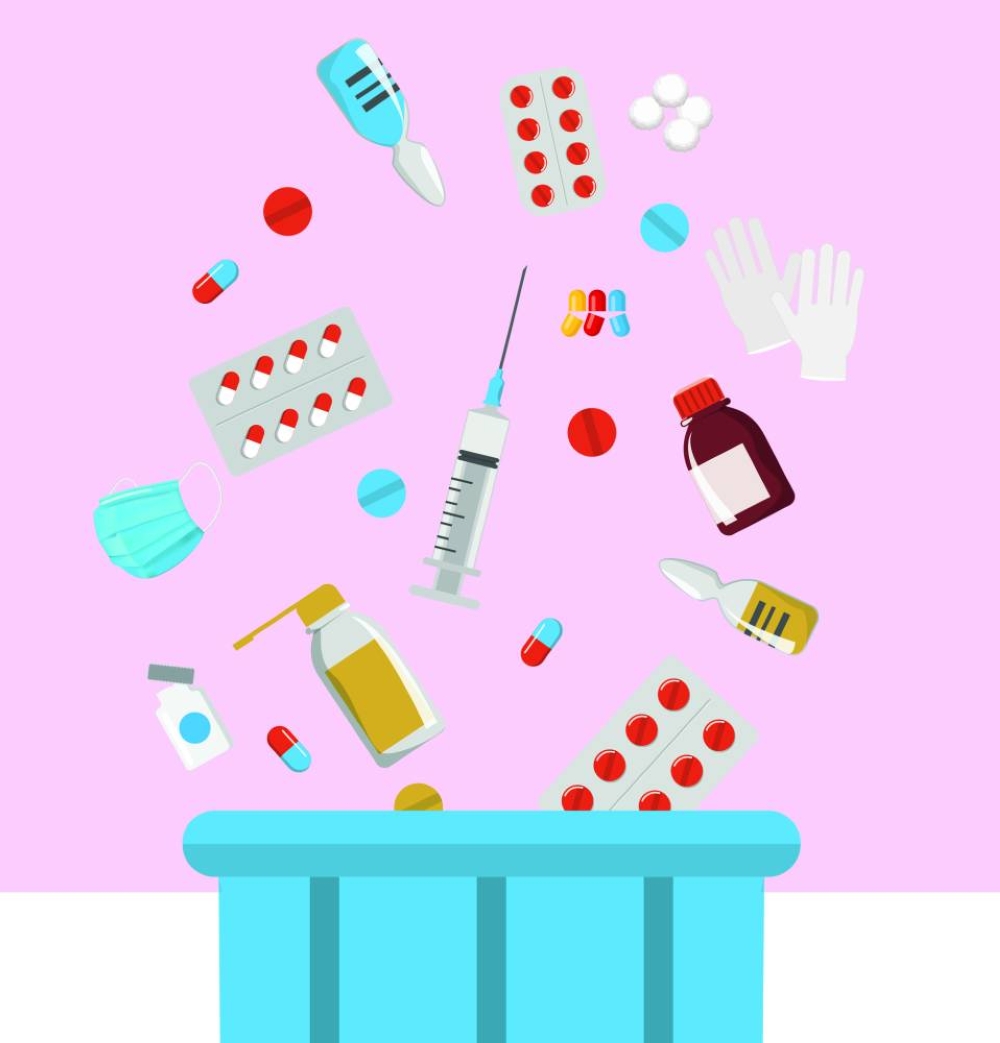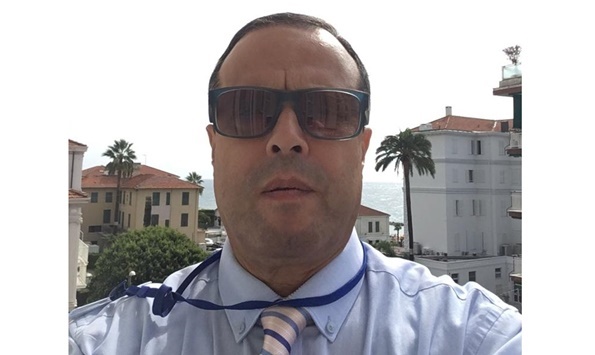The Ministry of Public Health (MoPH) has identified a number of important health procedures that must be followed for the safe disposal of household medical waste.
The ministry warned against disposing of the materials along with regular household waste or in public wastewater.
The ministry, in a guideline titled “Household Medical Waste”, identified household waste as that generated from healthcare activities at home, including single and multiple lodgings, hotels and hostels, camps, and schools.
Providing home health care takes two forms, by accredited health facilities, or by personal care.
The ministry warned against disposing of medical waste such as sharp tools, solid infectious waste, medicines that are no longer needed, toxic cells such as impenetrable metals (thermometers containing mercury) along with regular household garbage or into public sewage.
Disposing of these items with regular household garbage or into general sewage water exposes the waste collectors to the risk of infection, and also results in the contamination of the environment, the ministry cautioned.
It stressed that medical waste resulting from a health care service provided at home must be separated and collected in accordance with Resolution No. (8) of 2006 and the guidelines of the MoPH and transferred to health care facilities (clinics, health centres, hospitals) for handling and disposal.
The guidelines said medical waste generated from a personal care service should be managed at home as follows:
Sharp wastes for diabetics must be collected in containers provided by government healthcare facilities and must be delivered to the nearest health centre for disposal through the medical waste disposal system.
For infectious waste and sharp waste for non-diabetics, it should be placed in a solid, puncture-proof, and leak-proof container.
Containers must be labelled "biological hazardous waste", shut tightly and it should be ensured that the outside of the containers is not contaminated. Then the container should be taken with its contents for disposal to the designated place and must not be disposed off by placing it in a recycling waste containers.
With regards to pharmaceutical waste and personal care products, these should not be
disposed off in the sewage or in municipality containers except which is permitted, such as vitamins, cough medicines, intravenous fluids, and saline drops.
Here again the waste should be placed in a solid, puncture-proof, and leak-proof container and should be clearly labelled 'Pharmaceutical waste.'
The ministry pointed out that the guidelines are intended to provide a framework for medical waste management strategies and to help manage daily and long-term medical waste disposal.
The unified application of these guidelines will help reduce the lack of knowledge to deal with medical waste disposal it added.



